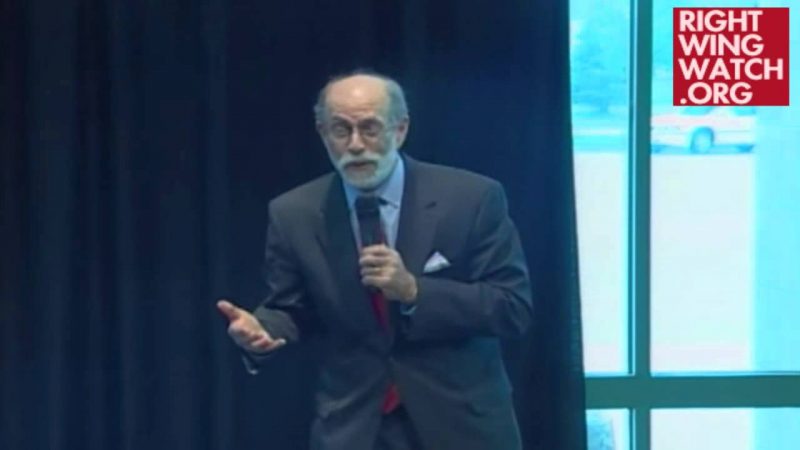Frank Gaffney is joining other conservative activists in pushing grossly misinformed criticisms of a recent decision to “relinquish federal government control over the administration of the Internet,” which the Center for Security Policy said yesterday in a radio bulletin would assist “various enemies of freedom – including hostile nations, stealth jihadist groups like the Organization of Islamic Cooperation and UN bureaucrats,” in their efforts to “dictate what the Internet can and can’t do.”
“Enabling that to happen is just the latest example of President Obama’s systematic efforts to diminish our country in ways that undermine liberty,” Gaffney warned.
Gaffney is either intentionally distorting the new policy or has no idea what he is talking about, as the decision was actually a rebuke to countries that wanted a stronger role for the United Nations:
Supporters of an Obama administration decision to untether the group that manages Internet infrastructure are challenging Republican criticism as misplaced or even politically motivated.
The Commerce Department announced Friday that it would give up oversight of the Internet Corporation for Assigned Names and Numbers, which manages .com and other domain names, when the current contract expires in fall 2015. The decision triggered backlash from some in the GOP, who worry the move hands authoritarian countries the power to take over the Internet.
Advocates see the opposite: a necessary step toward a more global Internet and one less susceptible to strong-arming tactics.
…
ICANN, a non-profit based in Los Angeles, has managed the nuts and bolts of the Internet under a long-time contract with the United States. But the U.S. role has worried countries like China and Russia, who want another organization to take ICANN’s place. They’ve tried to empower an alternative authority, the United Nations-led International Telecommunication Union.
…
But Democrats and Internet experts believe the move actually lessens the power of the United Nations’ agency and makes the entire playing field more fair.
“It’s not a good news item for the ITU,” said Nick Ashton-Hart, the Geneva representative for the Computer & Communications Industry Association and a former ICANN official. “If the U.S. was to try and maintain the master key, it would have been more likely to result in the fragmentation of the Internet,” because other countries could claim a similar role.
…
If the agency hadn’t relinquished its oversight, the ITU could continue to argue that ICANN functioned as a pawn for the U.S. government, said former Rep. Rick Boucher (D-Va.), who oversaw the Energy and Commerce subcommittee with jurisdiction over ICANN. “This will reduce the level of global controversy.”








